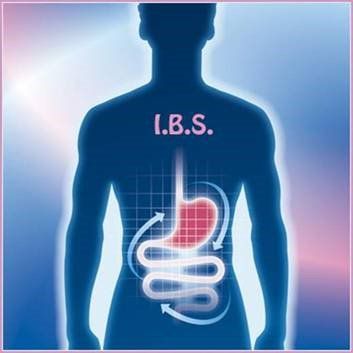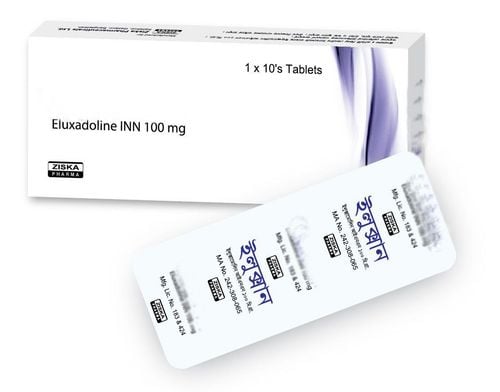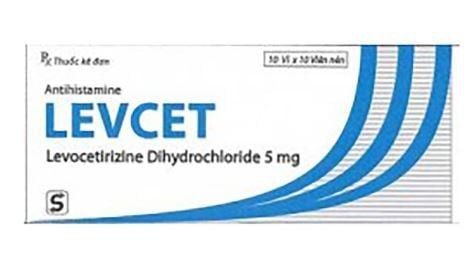This is an automatically translated article.
The article was written by Master - Doctor Mai Vien Phuong - Head of Gastrointestinal Endoscopy Unit - Department of Medical Examination and Internal Medicine - Vinmec Central Park International General Hospital.Irritable bowel syndrome (IBS) is a very common functional gastrointestinal disorder, affecting 10-20% of adults in the United States. It may be a multifactorial condition involving a number of different mechanisms such as dyskinesia, visceral sensitization, central processing, genetic, psychological, and inflammatory factors. Adverse reactions to foods can also play an important role in IBS, as up to 65% of IBS patients report that their symptoms are related to specific foods.
1. What is a food allergy?
Up to 20% of the population reports allergic reactions to foods. Reported symptoms are nonspecific and include abdominal pain, nausea, bloating, and diarrhea. Patients with IBS are more likely to report adverse reactions to foods than the general population, with a prevalence up to 50% higher.A food allergy is an immune-mediated reaction and is classified as an IgE reaction, a non-IgE reaction, or a mixed reaction (IgE and non-IgE). Symptoms of a food allergy occur recurrently and rapidly (usually within minutes) of exposure to a certain food. For IgE-mediated food allergies, a hypersensitivity reaction is required with the development of specific IgE antibodies to the food allergen (eg, peanuts). T-cell-mediated non-IgE food allergies are usually limited to childhood and include food-protein-induced inflammatory bowel syndrome. Mixed food allergies (IgE and non-IgE) include cow's milk protein allergy, eosinophilic esophagitis, and eosinophilic gastroenteritis.
2. Frequency of food allergies
Food allergies are uncommon and occur in only 1%–3% of adults. They are more likely to occur in people with allergies but less likely in IBS patients. The most common types of food allergies in adults, based on IgE testing (with estimated prevalence), are shellfish (2%), peanuts (0.6%), tree nuts ( 0.6%), fish (0.4%), wheat (0.4%), cow's milk (0.3%), eggs (0.2%), and sesame (0.1%).The diagnosis of a food allergy is based on a history of a repeat reaction to certain foods (eg, itching of the roof of the mouth and lips, angioedema, dysmenorrhea, periorbital edema, dysphagia, dysmenorrhea. swallowing, laryngospasm, bronchospasm, nausea, vomiting, abdominal pain, diarrhea, urticaria, hypotension and anaphylaxis) were associated with the trial. Skin prick tests are only 50% positive in patients with true food allergies. Serum IgE levels correlate with the likelihood of a clinical reaction to a food, although this level does not correlate with the magnitude of the response. Sensitivity of serum IgE is low; Up to 25% of clinically significant reactions, including anaphylaxis, can be missed.

3. Most allergic reactions to food represent a food intolerance or sensitivity to food
Food intolerance is defined as an undesirable reaction to a food that is not mediated by immunity. These reactions can develop for a variety of reasons, including pharmacological effects of foods (eg, salicylate, active amines, caffeine, glutamate, serotonin, tyramine, and capsaicin), enzyme defects (eg, such as lactase and sucrase-isomaltase), transport defects (eg, fructose, glut-2, and glut-5), dysfunction (eg, dyspepsia), or psychological factors (eg, dyspepsia). anorexic).Gluten sensitivity is one of the most commonly reported food-related reactions of IBS patients. In many affected IBS patients, it is thought to be a nonpathologically mediated response and possibly even an adverse reaction to the indigestible, unabsorbable carbohydrate, fructan.
4. Food allergy testing in IBS patients is not recommended unless relapsing symptoms related to food allergy are present.
Many tests are marketed to diagnose food intolerances; however, no test is confirmed and most do not undergo rigorous testing. Evaluation of Ig food antibodies has not been validated and, at present, is not recommended. The results of the leukocyte activation test are intriguing but need to be confirmed.In summary, the low specificity of food allergy tests will yield many false positives. The prevalence of food allergies in adults is low, with the finding that IBS patients are less likely to have food allergies and poor diagnostic test features (serum IgE testing and injection testing). skin) making them ineffective and cost-effective for testing IBS patients for food allergies. IBS patients should only have food allergy diagnostic testing if symptoms recur when consuming a certain food.
Please follow the website: Vinmec.com regularly to update many other useful information.
Please dial HOTLINE for more information or register for an appointment HERE. Download MyVinmec app to make appointments faster and to manage your bookings easily.
References: journals.lww.com













